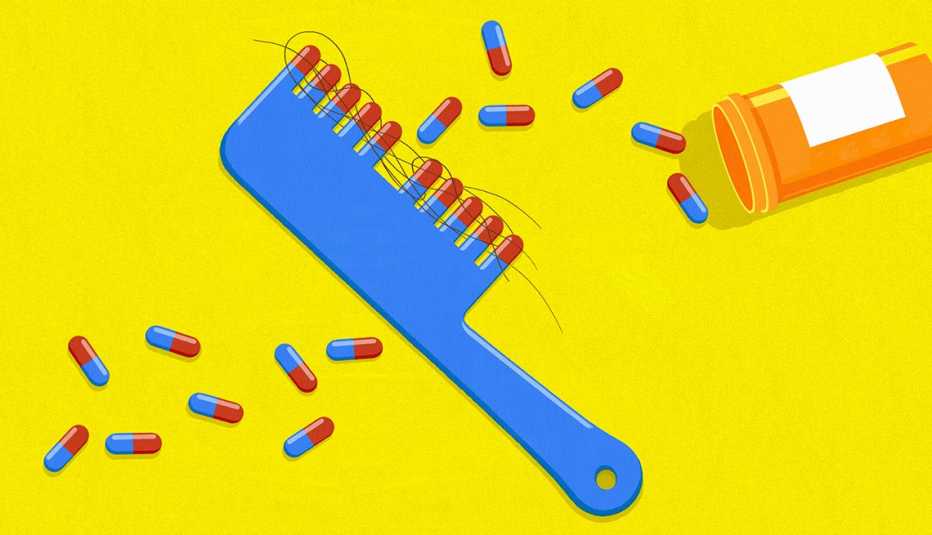Staying Fit


The patient was depressed. She had kidney disease, endured regular dialysis and had undergone an aggressive medical regimen after doctors discovered blood clots. But that wasn’t what was dimming the 49-year-old’s spirits.
“My hair is falling out,” she lamented.


AARP Membership— $12 for your first year when you sign up for Automatic Renewal
Get instant access to members-only products and hundreds of discounts, a free second membership, and a subscription to AARP the Magazine.
Her doctors suspected the cause. She had been prescribed warfarin, an anticoagulation drug, to deal with her clotting issue. Within three weeks of switching to an alternative drug, apixaban, her hair stopped falling out — and eventually it grew back.
Like turning gray, hair loss can be a natural part of aging. But alopecia, the medical term for hair loss, is a complex condition with many variations, from slow-progressing balding (referred to as male- or female-pattern hair loss) to more rapid and patchy loss (alopecia areata is a common form). Genetics, hormonal changes, inflammation and even certain diseases — including, in some cases, COVID-19 — can trigger temporary or permanent hair loss. And prescription drugs may also trigger excessive and sudden shedding.
8 Meds That Can Harm Your Hair
Ask your doctor about these drugs, which can cause hair loss in some patients.
1. Anticoagulants
- heparin
- warfarin (Coumadin, Panwarfin, Sofarin)
2. Antidepressants, mood stabilizers, bipolar disorder medications
- divalproex sodium (Depakote)
- fluoxetine (Prozac)
- lithium
- sertraline (Zoloft)
- valproic acid
3. Antimicrobial tuberculosis drugs
- isoniazid
4. Arthritis, inflammation drugs
- etanercept (Enbrel)
- leflunomide (Arava)
- methotrexate (Rheumatrex, Trexall)
5. Blood pressure meds
- ACE inhibitors
- beta-blockers
6. Cholesterol-lowering meds
- atorvastatin (Lipitor)
- gemfibrozil (Lopid)
7. Epilepsy and anticonvulsant meds
- divalproex sodium (Depakote)
- lamotrigine (Lamictal)
- trimethadione (Tridione)
- valproic acid
8. Severe acne and psoriasis
- acitretin (Soriatane)
- isotretinoin (Accutane, Absorica)
The secret life of your hair
Each hair on your head has its own individual life cycle: A strand grows between two and eight years. Then, in a period of two or three weeks, it stops growing and rests for three to four months before detaching from the follicle. Your head of hair is a mixture of 85 to 90 percent actively growing hair and hair that’s resting and waiting to shed.
But when the body experiences a trauma, sudden, substantial shedding can occur. Triggers can include an acute illness, stress, a severe nutritional deficiency, rapid weight loss — or a drug that proves toxic to hair follicles. Drugs can be the culprit for a condition known as drug-induced telogen effluvium, which leads to increased shedding on top of the scalp a few months after exposure.



































































More From AARP
Why Women Lose Their Hair
Plus how to make it grow back
5 Types of Drugs That May Curl Your Hair
Prescription medications could be behind sudden changes in hair texture
8 Common Medications That Can Cause Weight Gain
Your medicine cabinet may hold the answer to your rising weight
Recommended for You